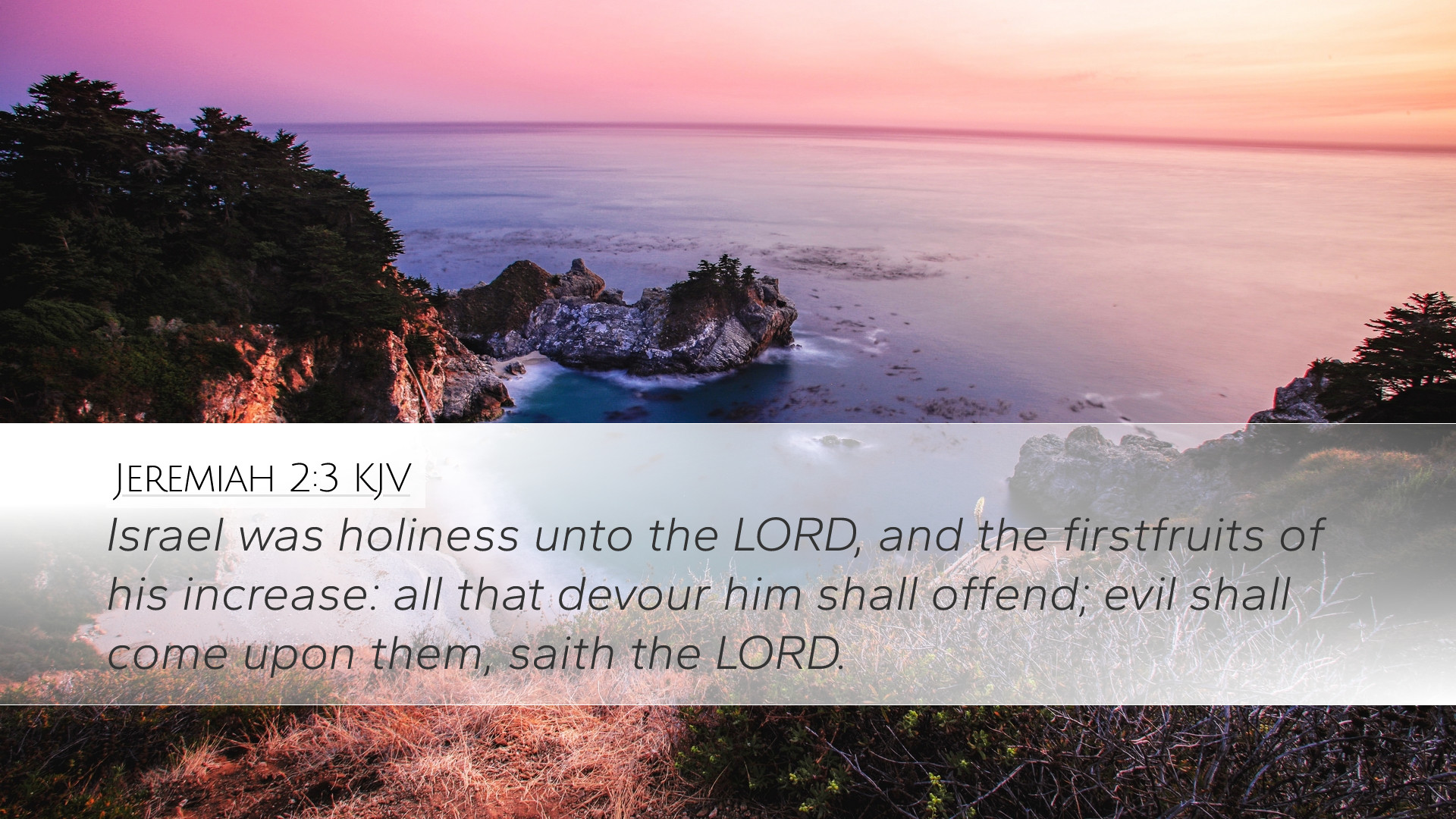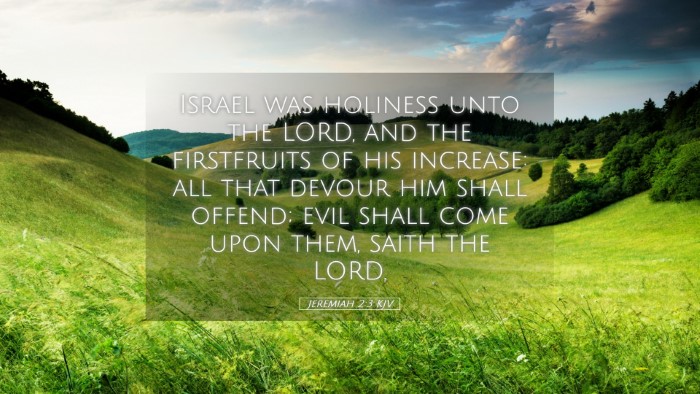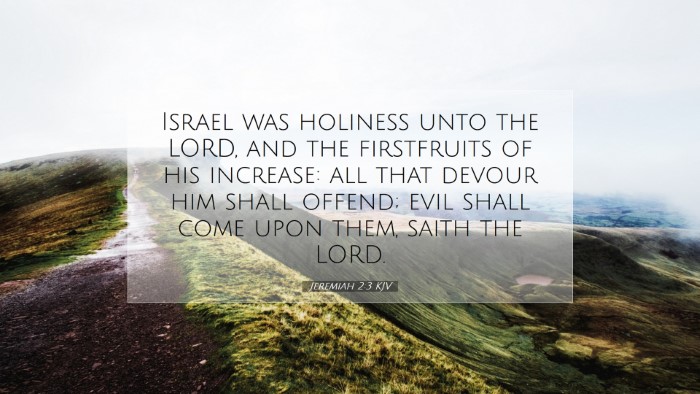Commentary on Jeremiah 2:3
Jeremiah 2:3 states: "Israel was holiness unto the Lord, and the firstfruits of his increase: all that devour him shall offend; evil shall come upon them, saith the Lord."
The importance of this verse lies in its portrayal of Israel's sacred status and its relationship with God. This verse encapsulates the idea of Israel as a chosen people, consecrated to the Lord, and highlights the implications of turning away from this holy identity.
Overview of Themes
- The Holiness of Israel: Israel is described as "holiness unto the Lord," signifying its set-apart nature.
- The Concept of Firstfruits: The firstfruits demonstrate the foremost position of Israel among the nations.
- The Divine Protection: The verse underscores God's protective nature over His people.
- Consequences of Disobedience: The threats faced by those who oppose God’s holiness are articulated herein.
Commentary Insights
The Holiness of Israel
Matthew Henry emphasizes that Israel's status as "holiness" reflects not only their election but also their call to live in accordance with God's commands. Holiness here signifies a separation from sin and a dedication to God's service. Henry notes that this separation necessitates a lifestyle that exemplifies reverence and obedience to God, thus serving as a testimony to the nations.
The Firstfruits of His Increase
Albert Barnes elaborates on the term "firstfruits" which historically denotes that which is most valuable and set apart for God. This concept suggests that Israel was to offer their best to God, much like the offerings commanded in the Law. Thus, Israel's role was not only to be recipients of God’s blessings but also to be active participants in worship and service, displaying gratitude through their living.
Divine Protection and Accountability
Adam Clarke points out the protective discourse surrounding God’s people. The phrase "all that devour him shall offend" characterizes attacks on Israel as offenses against God Himself. The sovereignty of God ensures that any injustice directed towards His people will not go unpunished, which reinforces the seriousness with which God regards His covenant relationship.
Consequences of Disobedience
In this verse, the prophetic warning is explicit. If Israel forsakes their holy status, they expose themselves to the presence of evil and divine judgment. Matthew Henry cautions that this calls attention to the broader principle that God does not leave the wicked unpunished. The prophecy serves as a dire reminder for the people of Israel—and by extension, all of God’s people—about the importance of remaining steadfast in faithfulness and obedience.
Theological Reflections
This verse invites deeper reflection on the nature of holiness. The call to be "holy as I am holy" (Leviticus 11:44) reverberates throughout Scripture, establishing holiness as a central characteristic of God’s nature. It elicits a broader discourse on how God’s people, past and present, are called to live in a way that reflects their identity as God’s chosen ones.
Implications for the Church Today
Today's church, like ancient Israel, is called to respond to God's holiness. Understanding the implications of Jeremiah 2:3 prompts believers to recognize their identity in Christ, which includes being "a chosen generation, a royal priesthood, a holy nation" (1 Peter 2:9). This verse thus serves as an admonition and exhortation for contemporary Christians to uphold their distinctiveness in a world that often seeks to dilute spiritual convictions.
Conclusion
Jeremiah 2:3 encapsulates God's deep desire for His people to embody holiness and integrity as reflections of His character. The insights gleaned from public domain commentaries underscore a call to holiness marked by devotion, active worship, and a serious acknowledgment of the consequences of disobedience. It is essential for followers of Christ in every generation to embrace this call, remaining faithful to their identity as God’s holy people.


